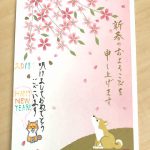Great quotes of Demon Slayer (Kimetsu no Yaiba) in Japanese!!
The popularity of Demon Slayer is really no stopping here in Japan.
Even Japanese prime minister Suga Yoshide used the famous phrase of Demon Slayer at an extraordinary session this month.
He knows well!!
Σ(゚Д゚)
Certainly, there are many quotes adults should learn from it.
Here, I’m gonna introduce some famous phrases of Demon Slayer with Japanese.
Quotes of Giyu Tomioka(富岡義勇)(とみおかぎゆう)
生殺与奪の権を他人に握らせるな
Don’t ever give others a power of life and death!!
生殺与奪(せいさつよだつ) might be a bit difficult word.
生殺(せいさつ) means “living and killing” or “dead or alive”.
与奪(よだつ) means “giving and robbing (taking away)”.
権 (けん) is an abbreviation of 権利(けんり), that is, “right”.
他人(たにん) is “others”.
握(にぎ)る is “grip”.
So the meaning is “Do not give the right of dead or alive to others”.
When Tanjiro (main character) begged Giyu Tomioka to overlook his sister Nezuko (Tanjiro’s sister), Giyu Tomioka got mad and shouted “Don’t ever give others a power of life and death!!”.
He was going to kill Nezuko as she became a demon.
And Tanjiro begged him to save her and that manner made him very angry.
Because Tanjiro gave him very important right of dead or alive.
泣くな、絶望するな、そんなことは今することじゃない!
Don’t cry. Don’t despair. Now’s not the time for that!
泣(な)くな is “Don’t cry”.
絶望(ぜつぼう)するな is “Don’t despair”.
When the sentence is ended with “な” in the end, that usually means an imperative form.
食べるな (Do not eat), 行くな (Do not go), するな(Do not do it), etc.
But note that not all the sentences ended with “な” are imperative forms.
For example, “いいな”、”よかったな”, “すごいな”, etc.
They are just an impression to express one’s emotion.
そんなこと is “Such a thing”.
今(いま)することじゃない is “Not the thing you need to do right now”.
You can see a part of the character of Tomioka here.
He is certainly strict but it is real strict.
He is not like he doesn’t like Tanjiro, rather, on Tanjiro’s side.
He knew what Tanjiro really should do now although he knew what Tanjiro feel well.
怒れ、許せないという強く純粋な怒りは手足を動かすための、ゆるぎない原動力になる
Feel the rage, The powerful, pure rage of not being able to forgive will become your unswerving drive to take action
ゆるぎない means “unswering”.
原動力(げんどうりょく) is “drive”.
So ゆるぎない原動力 means “unswerving drive”.
He knew that what he should tell Tanjiro was not a kind word from sympathy.
Tanjiro has to live a very tough life from now on.
To survive the situation, what he needs is a pure strong emotion which becomes an unswerving drive.
Although Tomika looked cold on the surface, what he wished in his heart was that Tanjiro to live strong.
Quotes of Tanjiro Kamado(竈門炭治郎)(かまどたんじろう)
神様どうかこの人が今度生まれてくる時は鬼になんてなりませんように
God, please do not make this person a demon next time he was born in this world
神様(かみさま) means “God”.
But technically speaking, there is no monotheism in Japan as you may already know.
Certainly, Tanjiro said “God” but it is not the meaning of God you imagine in Europe or US.
It is not like he believes in God but it is more like someone or something, rather, just a strong wish of his own.
So if I say, it is not like “Oh, God” but “Please”.
どうか is actually “Please”.
When you wish or beg, you can use “どうか” in the meaning of “Please”.
ように is used to express one’s wish or hope.
In English, you can use “May” for “ように” like “May you succeed!”.
Tanjiro defeated the demon but he feels sad at the same time.
Because the demon was also once human like Tanjiro and there was a sad reason behind to become a demon.
He wished the demon never become demon next time he is born in this world.
失っても失っても生きていくしかないんです、どんなに打ちのめされようと
No matter how many people, you may lose, you have no choice but to go on living. No matter how devastating, the blows maybe.
Here, the same word is repeated.
失っても is a combination of “失う” and “~しても”.
失う means “lose” and しても means “although” or “even if”.
So 失っても means “Even if you lose”.
By repeating the same word, it stresses the meaning of the word itself.
So 失っても失っても means “even if you lose something again and again”.
Here, something to lose means life itself, so it can be translated into “No matter how many people, you may lose”.
~しかない means “no other choice but to”.
So when there is no choice but to do something, you can use this “~(する)しなかい”.
どんなに~されようと means “No matter what ~”.
されよう(される) is the passive form of “する”.
打ちのめす means “to beat down” or “to defeat”.
Here, the passive form of 打ちのめす is used, so it becomes “打ちのめされる”.
どんなに打ちのめされようと is translated into “No matter how many times you are broken (beat down)”.
So free translation becomes “No matter how devastating”.
頑張れ炭治郎頑張れ!俺は今までよくやってきた!俺はできる奴だ!そして今日も!これからも!折れていても!俺が挫けることは絶対にない!
I can do it I know I can do it. I’m the guy who gets it done! Today! Or anytime in the future! Even if I’m broken! I’ll never give up no matter what!
頑張れ means “Fight!” or “Hang in there!”.
In Japan, when you cheer someonw up, we say “頑張れ” or “頑張って”.
In English, it will be “Take it easy”.
So, I think 頑張れ is Japanese word.
No proper English word.
できる奴 is “an able man”.
Here, Tanjiro talks to himself “Fight Tanjiro, hang in there, I’m an able man”.
挫(くじ)ける means “being broken”.
絶対(ぜったい)にない is “never happen”.
So, 挫けることは絶対にない means “never beaten down (broken)”.
Instead of discouraged, he chose to praise himself for what he had done until today.
Instead of focusing on the negative side, he chose to focus on the positive side.
And that gave him very strong power, unswerving power to win.
Quotes of Sakonji Urokodaki(鱗滝左近次)(うろこだきさこんじ)
判断が遅い
お前はとにかく判断が遅い
今の質問に間髪入れず答えられなかったのは何故か?
お前の覚悟が甘いからだ
Your judgment is slow, you can not make a quick judgment anyway
Why you could not answer me instantly?
That’s because you are not determined
Sakonji Urokodaki(鱗滝左近次) is the techer of Tanjiro.
He taught how to use a sword for Tanjiro.
判断(はんだん) is “judgment”.
遅(おそ)い is “slow”.
とにかく is “anyway”.
Urokodaki told him “Your judgment is slow, anyway”, here.
間髪入(かんぱつい)れず is “without time lag”.
That is, “Instantly”.
覚悟 is a “strong determination” or “unswerving determination”.
When you decide something with no turning back, it sometimes even means dead or alive, that’s your “覚悟”.
It is translated into “resolution” “commitment” “dedication” “determination”, etc. in English.
甘(あま)い is “sweet”.
This “甘い” is used not only for sweets but for your determination or thoughts.
For example, we also say “考えが甘い”.
That means “You are being naive”.
Here, Urokodaki talked about Tanjiro’s determination.
He asked Tanjiro if he can kill his sister Nezuko when she becomes a demon.
Tanjiro couldn’t reply instantly, so Urokodaki told him “Your judgment is slow”.
Urokodaki told Tanjiro the reason why he could not reply instantly.
That’s because he is not determined.
Well, I have to say it’s really tough to respond to such a question instantly without well-preparation.
Quotes of Jigoro Kuwajima (桑島慈悟郎)(くわじまじごろう)
いいんだ、善逸、お前はそれでいい、ひとつできれば万々歳だ。
ひとつのことしかできないなら、それを極め抜け、極限の極限まで磨け。
泣いていい、逃げていい、ただ諦めるな。
誰よりも強靭な、刃になれ!!
No problem Zenitsu, you’re perfect just the way you are, if you can master one, that’s cause for celebration.
If you can do only one thing, hone it to perfection. Hone it to the utmost limit.
It’s all right to cry, it’s all right to run away, just don’t give up!
Become the most durable blade of all!!
Jigoro Kuwajima (桑島慈悟郎) is the teacher and uncle of Zenitsu Agatsuma (我妻善逸).
Zenitsu is also very popular character.
万々歳(ばんばんざい) is “very good”.
A little bit old way but he is an old man, so I don’t feel strange.
極(きわ)める means “to master”.
抜け is “out”.
Here, 抜ける is added after 極める and becomes “極め抜く”.
By adding 抜く, it has the meaning of pulling through something.
This is an order or instruction of Jigoro Kuwajima, so it becomes “極め抜け”, an imperative sentence.
極め抜け, that is, “Master it to the end (limit)”.
磨(みが)け is an imperative form of “磨く”.
磨く means “hone”.
Not only for the objects such as a glass or mirror but also for the skills you can use this word.
諦(あきら)めるな is “Don’t give up”.
This is also an order, so an imperative sentence.
強靭(きょうじん)な is “very strong” or “very tough”.
Sword skill Zeitsu could use was only one.
He himself felt disappointed.
He often cried and wanted to run away.
But his uncle tells him that it is OK what he can use is just only one sword skill.
If so, focus on it and hone it to the limit, he says.
He also says that it is OK to cry and run away but never give up.
This is really true.
If you have something you can do better than others do, focus on that one thing to the limit.
I totally agree with him.
Summary of Quotes of Demon Slayer in Japanese
この投稿をInstagramで見る
I think one of the big reasons of the popularity of Demon Slayer is its quotes.
When Tanjiro felt discouraged, instead of giving up, he focused on the positive side within himself.
People often complain about what they don’t have and do not notice what they have.
Uncle of Zenitsu told him that one skill is more than enough.
As long as he doesn’t give up, it is OK whether he run away or cry.
This is also really true.
If you have something you can do better than others’, why not focusing on only that one thing to the limit.
The main reason we can not master things is we do many things at the same time.
And give up on the way in most cases.
If we focus on just one thing to the limit, to the stage no one can come up with, you will be the only one person in the field.
Of course, there are many obstacles on the way, but if you don’t give up to the end, then, you will be the only one.
And people call the one as a master in the field.
Demon Slayer has many quotes adults also have to learn and they touch our hearts.
That might be one of the reasons it became very popular, rather, a social phenomenon in Japan right now.
Official Website(Shonen Jump)
https://www.shonenjump.com/j/rensai/list/kimetsu.html
Official Website(Anime)
https://kimetsu.com/anime/risshihen/
Source of Quote
https://www.shonenjump.com/j/rensai/list/kimetsu.html (Publisher : Shueisya, Author : Koyoharu Gotoge)
https://hiro8japan.com/review-of-demon-slayers-rice-paddy-art-in-gyoda
Where is Demon Slayer’s rock in real life? I went to the location!
Meaning of Kimetsu no Yaiba in Japanese! English Translation is correct?
PS. I have my store selling rare, unique Japanese goods in eBay (Following is the link to my store)
https://ebay.us/uFJMri











